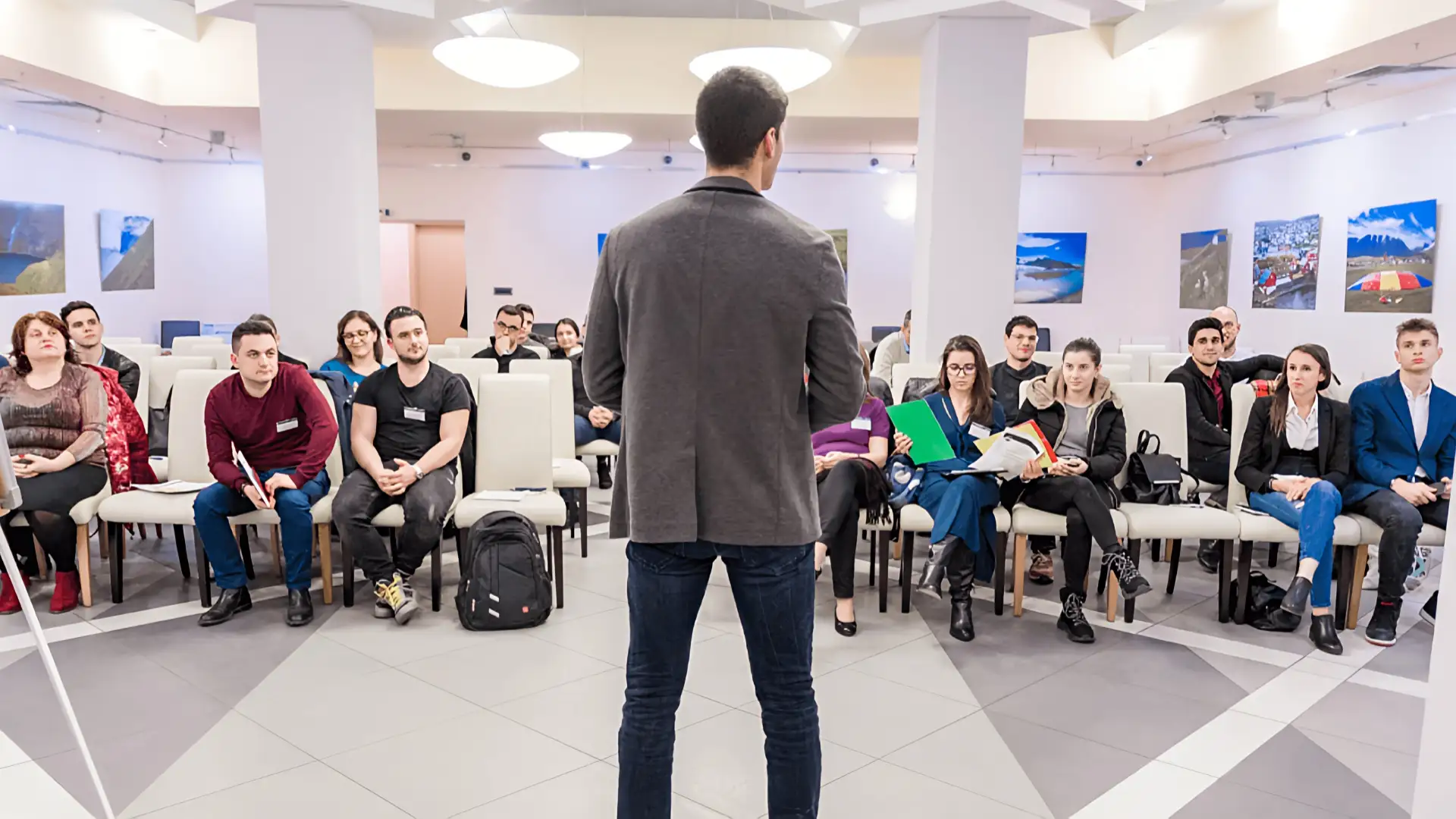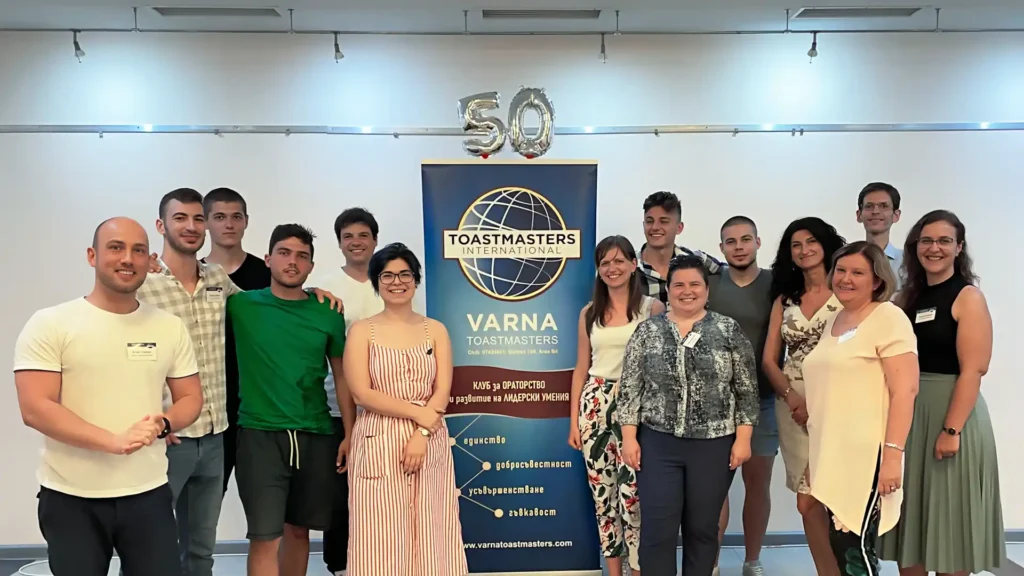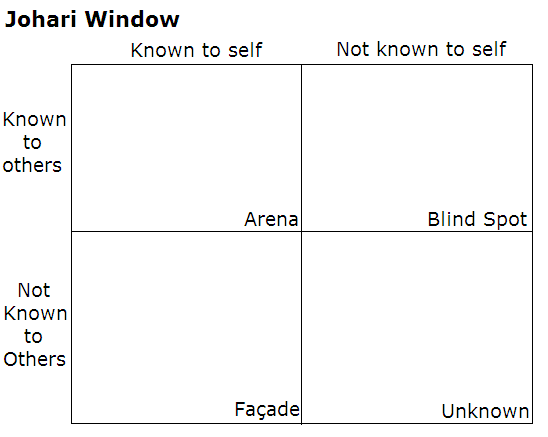Why Toastmasters is the best leadership program?

Answering this question briefly is easy. For over 100 years, Toastmasters International has united clubs worldwide through a structured program that honed leadership skills. Besides mastering various styles of public speaking, the focus includes key competencies such as active listening, giving and receiving feedback, impromptu speaking, and debating. At first glance, this answer may seem brief, but it is not comprehensive. Therefore, a detailed exploration of each element is necessary.
It takes courage to stand up and speak.
It also takes courage to sit down and listen.
Winston Churchill
Speaking in front of an audience focused entirely on what’s being said is, to put it mildly, stressful. If someone claims otherwise, don’t believe them. Clearly, they’re so paralyzed by the fear of public speaking that they don’t even realize what they’re feeling. Does this mean that those who understand the least explain themselves the most confidently? The answer is a resounding no. Good preparation prevents failure. It starts with having a structured idea. That’s essential.
Each Toastmasters club has a clear framework for organising meetings, following a program, and assigning tasks. Every responsibility, be it the “Ah-Counter” monitoring filler sounds or the event host, is clearly defined and easy to carry out. How does this relate to leadership skills? These roles are crucial for creating conditions conducive to the development of leadership skills. Each role teaches valuable lessons—listening carefully, paying attention to details, and following procedures. These skills are not mere resume fillers but genuine abilities.

The essence of the leadership program lies in the resources accessible to every club member. The global learning center, Base Camp, offers not just speech structure guides but also self-assessment tools. You can evaluate your level before and after a speech. True leaders are those who evolve. They possess self-awareness, a vision for themselves, and the ability to grow. Of course, extensive practice makes knowledge useful and eventually turns it into a reflex.
Each club’s mission is to create a supportive environment. The feedback a speaker receives from their evaluator and anonymously from attendees aims to be constructive, highlighting strengths and areas for improvement.
The “For the Curious ones” section below explains the scientific basis for the psychological success of Toastmasters International’s leadership program.
If your curiosity piques, there’s good news! Meetings are open to visitors. Yes, before deciding on membership, anyone can attend and participate in the impromptu session. This module entails delivering brief speeches, lasting up to two minutes, on a topic that is spontaneously revealed as you stand in front of the audience. But don’t worry! Or at least not too much—it’s the fun part of the program. You might even win the “Best Impromptu Speaker” title while getting a quick public speaking skills assessment—for free.
Another interesting recurring format is the debate. They aim not only for quick responses but also to develop combinative thinking skills. The goal is to influence audience attitudes, not just outtalk others.
Today’s digitally connected world may question the leadership skills cultivated by Toastmasters. How important are they in a video conference? The truth is, leadership is fundamentally about effective communication, regardless of the medium.
You must first hear, then listen, even to the silence. You must organise your thoughts and ensure they reach the recipient with the intended meaning. Be adaptable, combinative, and impactful.
For the Curious ones Wikipedia:
The Johari window is a technique designed to help people better understand their relationship with themselves and others. It was created by psychologists Joseph Luft (1916–2014) and Harrington Ingham (1916–1995) in 1955 and it’s made of 4 main elements:

- Arena/Open – The open area is that part of our conscious self – our attitudes, behavior, motivation, values, and way of life – that we are aware of and that is known to others. We move within this area with freedom. We are “open books”.
- Façade/hidden – Adjectives selected by the subject, but not by any of their peers, go in this quadrant. These are things the peers are either unaware of, or that are untrue but for the subject’s claim.
- Blind Spot – Adjectives not selected by subjects, but only by their peers go here. These represent what others perceive but the subject does not.
- Unknown – Adjectives that neither the subject nor the peers selected go here. They represent the subject’s behaviours or motives that no one participating recognizes – either because they do not apply or because of collective ignorance of these traits.
A person enhances self-awareness by talking about themselves and listening to others’ opinions about them.

